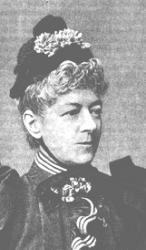Planning worship?
Check out our sister site, ZeteoSearch.org,
for 20+ additional resources related to your search.
- |
User Links
Search Results
The Waiting Time
Appears in 3 hymnals First Line: There are days of deepest sorrow Used With Tune: [There are days of deepest sorrow]
The Waiting Time
[There are days of silent sorrow]
Appears in 1 hymnal Composer and/or Arranger: Frank L. Armstrong Incipit: 32111 21743 21223 Used With Text: The Waiting Time
[There are days of silent sorrow]
[There are days of deepest sorrow]
Appears in 1 hymnal Composer and/or Arranger: J. B. Ferguson Used With Text: The Waiting Time
[There are days of deepest sorrow]
The Waiting Time
Author: Sarah Doudney Hymnal: Boundless Love #108 (1896) First Line: There are days of silent sorrow Refrain First Line: There are days of silent sorrow Lyrics: 1 There are days of silent sorrow
In the seasons of our life;
There are wild despairing moments;
There are hours of mental strife;
There are times of stony anguish,
When the tears refuse to fall;
But the waiting time, my brothers,
Is the hardest time of all.
Refrain:
There are days of silent sorrow
In the seasons of our life,
There are wild despairing moments,
There are hours of mental strife.
2 Youth and love are oft impatient,
Seeking things beyond their reach;
But the heart grows sick of hoping
Ere it learns what life can teach;
For before the fruit be gathered
We must see the blossoms fall;
And the waiting time, my brothers,
Is the hardest time of all. [Refrain]
3 We can bear the heat conflict,
Though the sudden, crushing blow,
Beating back our gathered forces,
For a moment lay us low;
We may rise again beneath it,
None the weaker for the fall;
But the waiting time, my brothers,
Is the hardest time of all. [Refrain]
4 For it wears the eager spirit
As the salt waves wear the stone,
And the garb of hope grows threadbare
Till the brighter tints are flown;
Then amid youth’s radiant tresses
Silent snows begin to fall;
Oh, the waiting time, my brothers,
Is the hardest time of all. [Refrain]
5 But at last we learn the lesson
That God knoweth what is best
For with wisdom cometh patience,
And with patience cometh rest.
Yea, a golden thread is shining
Through the tangles woof of fate;
And our hearts shall thank him meekly,
That he taught us how to wait. [Refrain] Languages: English Tune Title: [There are days of silent sorrow]
The Waiting Time
The Waiting Time
Hymnal: Joy Bells #122 (1878) First Line: There are days of deepest sorrow Languages: English Tune Title: [There are days of deepest sorrow]
The Waiting Time
The waiting time
Hymnal: The Helping Hand #28 (1878) First Line: There are days of deepest sorrow Refrain First Line: O, the waiting time, my brother
The waiting time
Sarah Doudney

1841 - 1926 Author of "The Waiting Time" Doudney, Sarah, daughter of Mr. George E. Doudney, of Cosham, Hants, was born near Portsmouth, but removed into a remote village in Hampshire at an early age. Her first efforts in literature were made when she was quite young, her poem, "The Lessons of the Water-Mill," a popular song, especially in America, having been written when she was only fifteen. Known mainly to the reading public through her stories, A Woman's Glory, Stepping Stones, and others, and through her contributions to the Sunday Magazine, Good Words, and other serials, her works, including fiction, and sacred and secular poems, have been widely read and appreciated. Her sacred poems are the least numerous of her writings. Some of these, as, "The Master hath come, and He calls us to follow," and "Saviour, now the day is ending," for use at the close of Evening Service, and of more than usual merit, create the desire for more of a like kind. Greater use, however, may be made of what she has written than has been done. By being buried in magazine literature, her hymns are somewhat difficult to trace. Her Psalms of Life was published by Houlston in 1871.
In the Sunday School Union Songs of Gladness, 1871, the following were given;—
1. He hath gone into His garden. The Vineyard of the Lord.
2. In Thy holy garden ground. The Vineyard of the Lord.
3. Land of peace, and love, and brightness. Heaven.
4. Saviour, now the day is ending. Sunday Evening.
5. The Master hath come, and He calls us to follow. Jesus and Mary of Bethany.
6. We praise our Lord to-day. Sunday.
7. We sing a loving Jesus. Praise of Jesus.
Of these, Nos. 1, 2, 3, are in her Psalms of Life, 1871, and all have passed from the Songs of Gladness into other collections.
Her:—
8. Room for the wanderer, room. Christ's Invitation. is in W. B. Stevenson's School Hymnal, 1880.
-- John Julian, Dictionary of Hymnology (1907)
==================
Doudney, Sarah, p. 307, i. Other hymns in common use:—
1. For all Thy care we bless Thee. Morning.
2. Lord of the golden harvest. Harvest.
3. Now the solemn shadows darken. Evening.
Nos. 1, 2, are from Miss Doudney's Psalms of Life, 1871, and No. 3 is in Mrs. Brock's Children's Hymn Book, 1881.
--John Julian, Dictionary of Hymnology, Appendix, Part II (1907)
Sarah Doudney
Frank L. Armstrong
Composer of "[There are days of silent sorrow]" in Boundless Love
Frank L. Armstrong


 My Starred Hymns
My Starred Hymns


